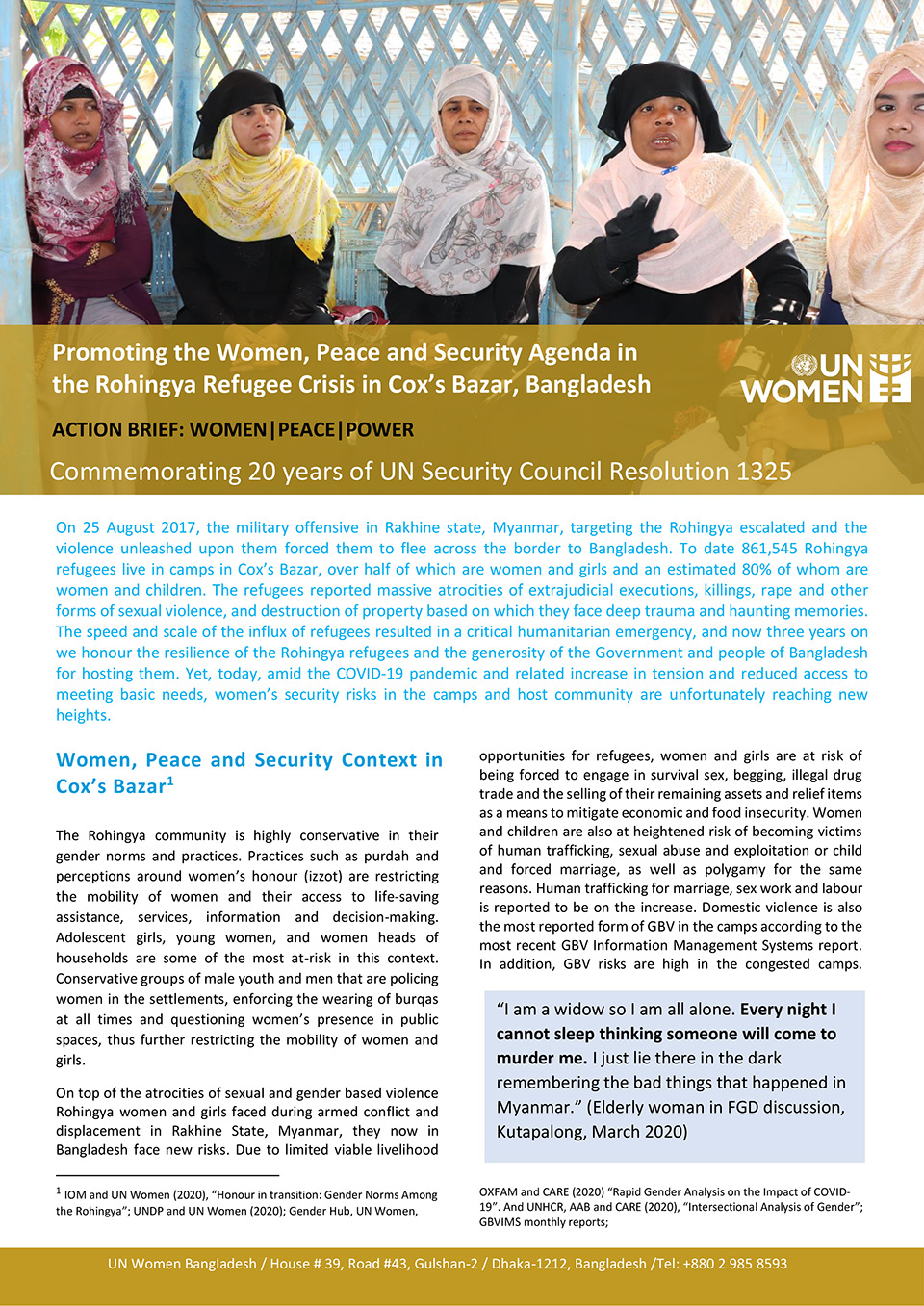
Promoting the Women, Peace and Security Agenda in the Rohingya Refugee Crisis in Cox’s Bazar, Bangladesh

ACTION BRIEF: WOMEN | PEACE | POWER
Commemorating 20 years of UN Security Council Resolution 1325
On 25 August 2017, the military offensive in Rakhine state, Myanmar, targeting the Rohingya escalated and the violence unleashed upon them forced them to flee across the border to Bangladesh. To date 861,545 Rohingya refugees live in camps in Cox’s Bazar, over half of which are women and girls and an estimated 80% of whom are women and children. The refugees reported massive atrocities of extrajudicial executions, killings, rape and other forms of sexual violence, and destruction of property based on which they face deep trauma and haunting memories.
The speed and scale of the influx of refugees resulted in a critical humanitarian emergency, and now three years on we honour the resilience of the Rohingya refugees and the generosity of the Government and people of Bangladesh for hosting them. Yet, today, amid the COVID-19 pandemic and related increase in tension and reduced access to meeting basic needs, women’s security risks in the camps and host community are unfortunately reaching new heights.
Women, Peace and Security Context in Cox’s Bazar
The Rohingya community is highly conservative in their gender norms and practices. Practices such as purdah and perceptions around women’s honour (izzot) are restricting the mobility of women and their access to life-saving assistance, services, information and decision-making.
Adolescent girls, young women, and women heads of households are some of the most at-risk in this context.
Conservative groups of male youth and men that are policing women in the settlements, enforcing the wearing of burqas at all times and questioning women’s presence in public spaces, thus further restricting the mobility of women and girls.